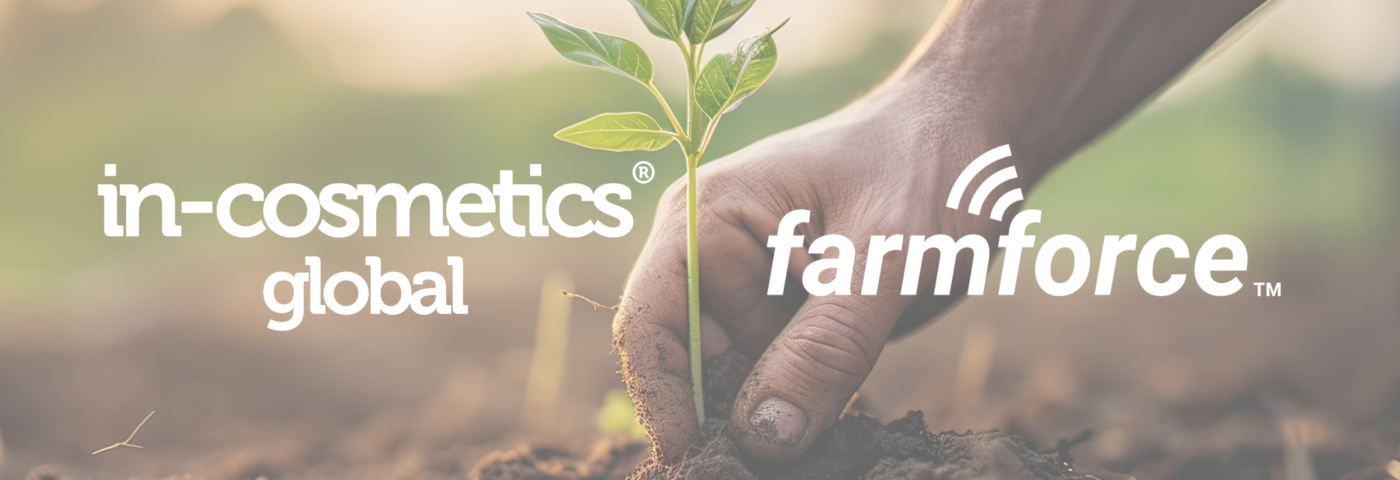As we look to celebrate World Environment Day, it’s an important opportunity to examine the status of sustainable practices across the cosmetics industry. Not only is it worth highlighting some of the significant steps that the sector is taking to enhance sustainability and mitigate its environmental footprint, but also to note where there is room for improvement.
With consumers increasingly demanding transparency in their cosmetic products, there is mounting pressure on both suppliers and major brands to adopt responsible practices, especially among ingredient sourcing. With recent news discussing some of the problematic practices uncovered in jasmine harvesting[1], it further highlights the need for greater oversight and responsibility from the very start of the supply chain.
One of the most effective ways to tackle these issues is through traceability—a vital tool that ensures companies are well-informed about their ingredient sources. For example, the launch of schemes such as the Traceability Alliance for Sustainable CosmEtics (TRASCE) showcase how industry organisations and bodies are collaborating to drive positive change. Formed in early 2024, TRASCE is a groundbreaking initiative led by Chanel and backed by 15 luxury brands and cosmetics companies. The consortium aims to enhance traceability in major ingredient and packaging supply chains across the beauty and personal care industry.
Discussing the concept of traceability in more depth, we spoke with FarmForce, a company dedicated to providing visibility in food’s “first mile”. Their innovative solutions, enable global sourcing and sustainability monitoring. This approach not only ensures the integrity of supply chains but also highlights the critical role of transparency in driving sustainable practices forward.
Global Sales Directors, Rodney Muriuki and Norbert Binot, shed light on how sustainability and traceability can go hand in hand, particularly in the cosmetics industry.
Enhancing transparency through supply chains
From brands and processors to manufacturers and producers, Muriuki emphasises the importance of transparency. He explains, “We work with customers to enhance transparency through their supply chains. The goal is to ensure that products are not just traceable but also sustainable in every action throughout the chain. This approach supports all suppliers and actors in the supply chain, making it easier for them to maintain sustainable practices.”
Two views on sustainability
Binot discusses the dual perspectives on sustainability. Binot notes, “We have two kinds of people talking about sustainability. Some see it as a need to make the world a better place, while others view it as a compliance requirement to run their business and sell products to end customers. For some, sustainability is a heartfelt mission; for others, it is a matter of meeting regulatory standards.”
The role of traceability in cosmetics
Muriuki emphasises how crucial traceability is, especially given that all cosmetic products are used on the body and skin. He says, “We believe that sustainability starts with traceability. When working with natural ingredients, which are known to be beneficial for the skin and body, understanding the sustainability initiatives from the source is essential.” For Muriuki, integrating traceability into sustainability efforts is a ‘no-brainer’.
Positive Changes in the Industry’
Binot highlights the significant impact that smaller companies in particular, can have on the environment. He observes, “We have seen small companies taking sustainability very seriously. These companies focus on organic products, farmer wellbeing, and soil protection. Their commitment to sustainability has led them to seek assistance, and Binot is pleased to see their dedication to people and the environment.”
The insights from Muriuki and Binot illustrate the critical role of traceability in achieving sustainable supply chains. Whether driven by a genuine desire to make the world a better place or by compliance needs, incorporating sustainability into business practices is essential. Focusing on traceability in the cosmetics industry will ensure that products are not only beneficial for consumers but also for the planet. As more companies embrace these principles, the future looks promising for sustainable business practices.
in-cosmetics Global 2025 will take place from 8-10 April 2025 at the RAI Amsterdam Convention Centre, Amsterdam, the Netherlands. For more information and to register to attend, visit here.
About Farmforce
Operating since 2012, Farmforce is a Norwegian Agri-Tech SaaS company. Our solutions enable visibility and traceability in Food’s First Mile. Using our solutions allow for sourcing and sustainability monitoring, globally. Our solutions consist of a Mobile App (Used by field staff collecting data from farmers) and Web Platform (Used by operations or sustainability managers at customers) that provides first mile traceability data for global supply chains.
[1] https://www.bbc.co.uk/news/world-middle-east-68172560
Feeling inspired?
Then why not visit one of the in-cosmetics events around the world?

